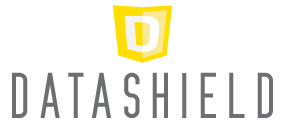Open or closed? Fully staffed or rotating assignments? Businesses are continuing to navigate the unknowns created by the pandemic. And one thing is abundantly clear: business-as-usual will never be the same. While many leaders are focused on when and how to bring staff back, this time may also provide a ripe environment for considering how you do business. Among those things worth evaluating—how you handle your sensitive information.
Have your file storage areas been neglected?
As you create and implement plans for returning to work, take into consideration the physical files that are stored at your facility. Do you have a documented process for managing files and information, including where, how, and how long it’s stored? Consider the amount of back-office legacy documents you have and those you may not need any longer. DataShield can provide guidance on how to effectively store files that aren’t yet ready to be destroyed.
Many businesses choose to store these documents in-house, however, it may make sense to move these files off-site. Our records management service offers a secure, easy-to-access solution for physical and electronic records, important documents, media tapes, and offsite valuables. Storing these materials off-site creates more space for staff to socially distance and also supports the effort to adhere to a records retention policy.
For documents that can be destroyed, businesses have the option to either drop the data and information off at our secure facility or we will send a member of the DataShield team to your location for pick up. The entire data destruction process and all of your materials are tracked, from the moment we take possession of your data through the confirmation of destruction. Going through this process can put your business on the path to reopening with greater confidence.
Will you have permanent remote employees?
The idea of shifting toward a paperless office isn’t new, but it also hasn’t gained much traction. Until now. In addition to considering the information and data that could be destroyed or moved off-site, businesses also need to consider how to engage work from home employees in their confidential destruction process. Regardless of your policies, employees do have sensitive information at home. Even if you have disabled the ability to print from remote work devices: where there’s a will, there’s a way. Leadership has the crucial job of creating a plan and making sure it’s followed. Determining what information can and should be taken home and what the destruction process looks like for that material is imperative to staying compliant and breach free.
This is another area the DataShield team can offer guidance. As part of your comprehensive solution, we can create a plan for handling everything from paper files to computers to portable hard drives and other media. Security is our top priority, and we take great pride in making sure your data and information are handled in compliance with HIPAA, FISMA, FACTA, and GLBA privacy rules. Just as businesses want to trust that the information their employees have access to at home is secure, we do all we can to support the integrity of your information regardless of location.
Is it possible to plan for the long-term?
When it comes to information and data handling processes, the answer is yes. When DataShield works with a business, we take into consideration immediate challenges as well as needs for the future. We work with our clients to create a path to consistent, effective data destruction processes, space- and time-saving records management solutions, and more so your business can stay focused on what you do best. Through rapid transformation or phased improvements, we can guide you toward a more secure environment.




